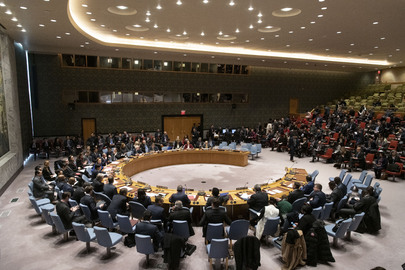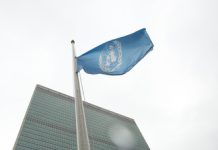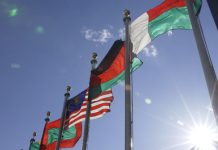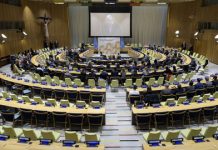Gaza: Vital repairs bring some relief to desperate Palestinians
UN agencies working in Gaza have been taking advantage of the ceasefire to restore vital infrastructure put out of service or destroyed during the war between Hamas and Israel.
Providing clean drinking water is a priority, in addition to food, medicine and shelter – particularly in north Gaza, where 310,000 people have gone since Friday.
With help from the UN Children’s Fund, UNICEF, a desalination plant run by the Palestinian Water Authority has been reassembled in Gaza City.
Key equipment was moved south to protect it from destruction during heavy bombardment and evacuation orders issued by the Israeli military.
With more, here’s UNICEF’s Tess Ingram in Gaza City now:
“This is a desalination plant. They took some of the equipment to the south when Gaza City was under heavy bombardment and there were evacuation orders. They were trying to protect it. And now today, they’re bringing it back to reestablish the plant and provide clean, safe drinking water to the people of Gaza City with UNICEF support.”
UN agencies and their partners are scaling up operations across Gaza as rapidly as they are allowed.
But they insist that much more humanitarian relief is needed urgently to meet the huge needs.
Haiti: record 5.7 million people in acute hunger
To Haiti, where one in two people is now acutely hungry and malnutrition rates among young children have doubled in just the last two years.
That’s according to the IPC food security platform – a UN-backed mechanism that highlights hunger emergencies.
The humanitarian crisis in Haiti is being driven by armed gang violence, economic decline and poor agricultural output.
The UN World Food Programme, WFP, is among the international agencies providing support to Haitians.
But acute underfunding is holding back its work, it said on Tuesday, in a call for $139 million for the next 12 months to reach the country’s most vulnerable families.
Rohingya at risk from humanitarian funding crisis
A lack of funding is also threatening vital humanitarian work at the vast Cox’s Bazar refugee camp in Bangladesh, aid teams warned on Tuesday.
In an update, UNICEF said that it is doing everything possible to help Myanmar’s ethnic Rohingya who have been sheltering there since being driven across the border by the Burmese military in 2017.
But the agency’s Carla Haddad said that its teams are running out of options and are having to halt critical activities and services.
These include child protection, water, sanitation and education.
At the same time, the UNICEF representative said there had been more than 600 cases of child recruitment by armed groups this year alone.
For children, losing access to education would be devastating, Ms. Haddad insisted. She also described how mothers in nutrition centres speak of reduced access to food, soap and water, which has led to an increase in child malnutrition and contagious disease.
The global funding crisis for humanitarian work has resulted in a 20 per cent cut in support for the work of UNICEF worldwide.
Daniel Johnson, UN News
Source of original article: United Nations (news.un.org). Photo credit: UN. The content of this article does not necessarily reflect the views or opinion of Global Diaspora News (www.globaldiasporanews.com).
To submit your press release: (https://www.globaldiasporanews.com/pr).
To advertise on Global Diaspora News: (www.globaldiasporanews.com/ads).
Sign up to Global Diaspora News newsletter (https://www.globaldiasporanews.com/newsletter/) to start receiving updates and opportunities directly in your email inbox for free.
































